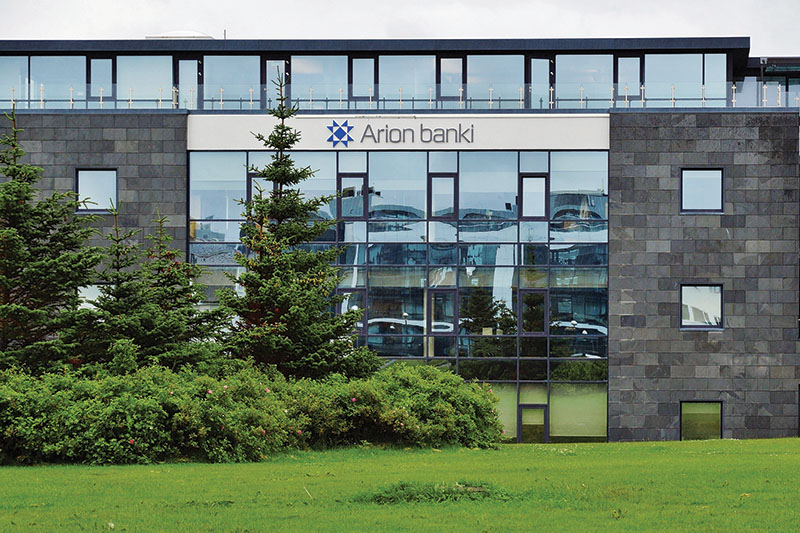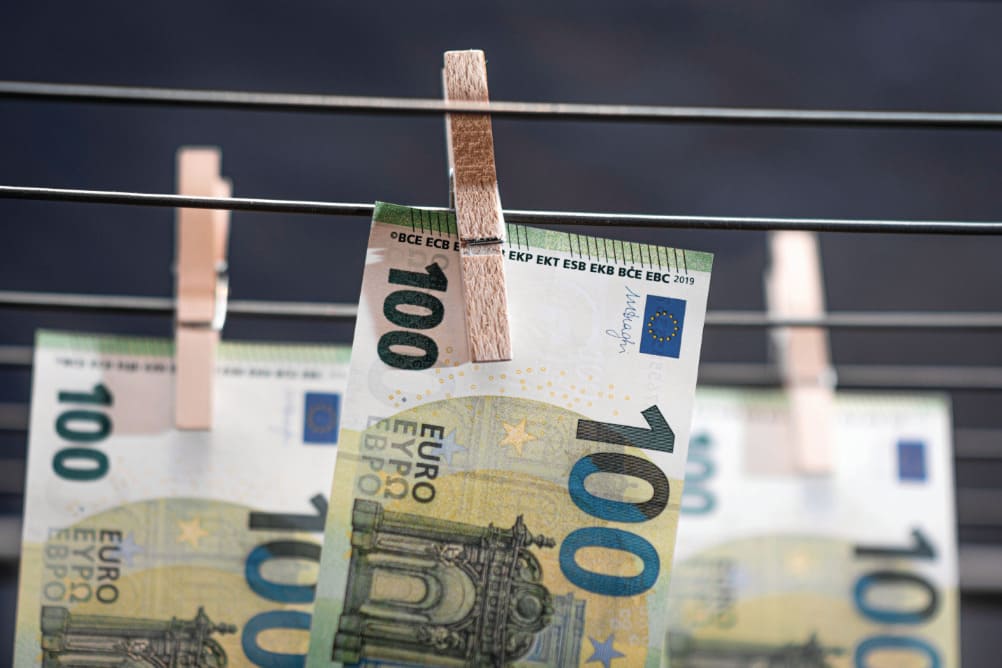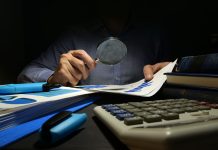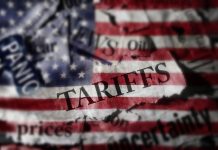By Jared Bibler
It was the first full week of October 2008, and stunningly, all three major Icelandic banks collapsed between Monday and Thursday. The fall of Lehman Brothers was fresh news. But unlike Lehman in the U.S., these three institutions dwarfed the economy of Iceland. To have a similar magnitude collapse would have required 300 simultaneous Lehman Brothers bankruptcies in the United States. The Icelandic stock market dropped almost 100% in the wake of this devastation.
The effects of this super-collapse were felt immediately by each and every Icelander. The currency lost around half of its value during this time, which meant that inflation took off. As nearly all mortgage debt in Iceland is either indexed to ISK inflation or to a foreign currency, the indebtedness and monthly housing payment for the whole country skyrocketed, nearly doubling overnight. Supermarket shelves began to go bare, as imported foodstuffs could no longer be paid for. There was a quiet run on the banks for domestic cash; foreign cash was suddenly no longer available at all. Many lost their financial sector jobs that first week, and the knock-on effect into the rest of the economy rippled out from there. A European wholesaler of automobiles sent a “ro-ro” ship to Iceland and every unsold new car was driven aboard and shipped away that autumn.
It would be a grievous mistake to write off the Icelandic financial crisis of 2008 as not more broadly relevant to the rest of the world – even today. Iceland is in many ways the world writ small. It is a petri dish for what can happen everywhere, at any time.
Despite the devastating events of 2008 — when the country faced near economic and social meltdown, the result of overgrown banks that had been manipulating their own market cap for a decade — the dragon of deeply corrupt financial markets has still not been slain, in Iceland or anywhere else. Iceland is a preview of coming attractions for the world’s big markets. Today we find ourselves back in the equivalent of the 1930s, thinking the Great War is over and done with. We naïvely refer to 2008 as the Global Financial Crisis, as if there will only ever be one, when GFC II almost certainly looms on the horizon. We are sitting on a time bomb.
Economic markets can do good work for societies, but they are always and everywhere human creations. The temptation to twist and abuse markets, to lie and cheat by using these imperfect human creations in the service of personal enrichment, will never disappear. White-collar crime is the true crime of the world, accounting for a much more significant chunk of the global economy than its poor blue sibling. But its effects are usually distributed, abstract, and hard to pin down. Unfortunately, the public in all but the most obviously corrupt countries does not perceive crimes committed by politicians and professionals as a serious problem. Societies put a disproportionate amount of resources into combating blue-collar street crime—and by comparison hardly anything into white-collar crime, the crime that keeps us all poor.
Don’t get smug about how your own country might stack up against Iceland. The only way we know any of the stories in Iceland’s Secret is that our whole economy collapsed, and with that we had a gift: a brief opportunity to try to find some truth among the rubble. We were able to see the banks frozen in time: frozen mid-crime. The crimes were big: for up to 10 years the three banks had been creating their own market value from whole cloth, a fiction that helped allow them to rapidly outgrow the small economy. The window for our investigative work was narrow because vested interests closed it only a few years after the crisis. Some version of this same story is most likely playing out in your own country right now. Maybe not as extreme as in Iceland (few things are), but it is there. Who is tasked with finding it?
Through my experience investigating the Icelandic meltdown, I learned that without sustained public interest and public pressure, the pervasive corruption in our financial markets will fester and grow. If we as a global society really want to clean up the dirty world of finance, we can 1) ensure our regulators are compensated as well as they would be in the private sector, ensuring the best pool of talent, 2) tie part of the pay of the regulators we hire to the size and severity of the successful civil and criminal cases they bring in. This would encourage some of the best and brightest minds in the financial world to become regulators, and it would seriously reduce the incidence of page-turning paralegals looking for an excuse to take no action. A nice side benefit would be the fascinating headlines as a never-before-seen batch of criminals are brought to justice.
That public pressure starts with you. Demand of your elected officials that they dedicate commensurate resources to fighting corporate crime as they do to street crime. And pay to support good journalism. Smart and properly incentivized journalists are often our only financial regulators.
What else can be done to stop financial fraud? Here are additional suggestions starting with what Iceland needs to do to set its financial house in order, followed by my advice for the rest of the world.
For Iceland
Most evidently to me, the financial regulator (FME) needs to come in line with international best practice and establish an enforcement division, with a permanent staff of six to eight, and a mandate for investigating potential criminal cases in the Icelandic financial sector. (To my knowledge, there are no plans to do so at present.) This group would report directly to the board of directors, or to a special enforcement board, and would work directly with police and prosecutors. The staff of this team would necessarily maintain complete independence from the day-to-day activities carried out by the central bank. They would pursue cases of insider trading and manipulation on the Icelandic markets, as well as corruption in the banking sector (illegitimate loans, conflicts of interest) and Ponzi/pyramid schemes, of which there are dozens active at any given time in Iceland. Having been wholly subsumed by Seðlabanki, the central bank, (as FME was at the beginning of 2020) could make this necessary independence all the more difficult. It has lost its visibility as a separate entity.

The independence of this new enforcement division from the rest of the activities of financial regulation will be key. Those who keep in daily contact with regulated entities must maintain good relations with their counterparts at banks and other financial firms. Those investigating potential cases of civil or criminal wrongdoing require a different skillset—and a different relationship with them. If Iceland is large enough to have its own financial sector, it is large enough to have its own enforcers. Without a well-staffed and serious enforcement capacity, a repeat of 2008 is nearly certain. Indeed, recent proclamations by Arion, the largest Icelandic bank and direct successor to the disgraced Kaupþing, that “Iceland is in a unique position to become the financial center of the Arctic” smack of Icelandic grandstanding in the years 2006 and 2007.
More than a decade after the collapse, Iceland still needs to right-size its banking sector. Currently, the three banks are still too big for the economy they serve. Having one of the three as a subsidiary of a bigger Nordic or mainland bank could also confer an advantage in much-needed knowledge and capital. Iceland could make an interesting test market for some of the innovative ideas for general reform of the financial sector, like limited purpose banking, which would transform financial corporations into mutual fund holding companies subject to full and real-time disclosure.
Finally, Iceland needs to phase out inflation-indexed (and foreign currency) home mortgages and other loans. This phenomenon is a forward-feedback loop that builds inflation (and hence instability) into the fabric of the economy. The negative-amortization loans themselves, with the next month’s payments unknowable at any time during the loan’s lifetime, behave as complicated derivatives and are likely not even legal to provide to retail customers under European law.
For legislators and voters everywhere
Today we stand at an equilibrium point: securities markets all over the world are full of bad actors and corrupt trades, yet no national regulator wants to seriously go after these criminals because to do so would disadvantage their market vis-a-vis all of the other markets. No country wants to lose market share! So the cancer continues to eat away at markets across the globe. When I describe the high level of illicit transactions in the markets of the world, some are surprised that there are so many trying to gain a little advantage by breaking laws and regulations. But those same people are not surprised by drivers who speed past them on the highway, trying to get home a little faster. In every area of human endeavor, there are those who seek to profit by skirting the law.

The losers in this culture of pervasive securities crimes are us: the public, who, if we are lucky, have pension or retirement fund money invested in these rotten markets. The value of our investments gets slowly siphoned off by inside traders and market manipulators, but we never really see or feel these losses. And the perpetrators of these scams talk about victimless crimes. Perhaps they are right: after all, if I break into your house at night and steal your television set, you get upset and call the police. You demand the authorities catch the thief. But if I break into your retirement fund and steal the value of your new car, you never notice.
A further detriment to proper policing of the securities markets in many countries comes from those who choose to believe in the fantasy of these markets as immaculate conceptions. These law and order types suddenly seem to lose their sheriff hats when confronted with the question of how much markets should be monitored. The idea that any crime at all could be committed in these markets is anathema to a whole worldview, and therefore entirely unwelcome. Don’t seek, and ye shall never find.
Make sure your financial regulator has an enforcement capability. Look at the size and types of cases they have brought down recently. Are these serious cases or window dressing? Are they naming the parties in these cases or hiding them from view?
At work and in life, we respond to incentives. What are the incentives for a financial regulator to oversee a truly well-regulated market? Spoiler alert: there aren’t so many. How many ‘page turners’ might there be—men and women who flip through legal books until they can justify taking another coffee break? Thousands. As societies, what incentives have we created for these staff to dive deep into their work and really do a great job? We have created incentives to create ever longer lists of legal and regulatory codes, yes. But we reward these people with nothing, or even with losing their jobs, when they try to take necessary action against conmen who poison the well for us all.
On the other hand, what are the incentives for a market participant to cut a corner, to cheat to make an extra million or two? Well, an extra million or two is the answer. Who has the stronger incentive to take action, the regulatory lawyer who collects his paycheck either way, or the small-time fraudster who pockets millions on a couple of inside trades?
The financial sector grows huge, fueled by bonus culture. But those supposed to oversee this sector are not similarly rewarded for doing great work. Their rewards are the same day in, day out.
If we continue to ignore these problems and let widespread illegal behavior in markets fester, we risk a COVID-like infection of the world financial system—if it is not already present. To quote journalist Spencer Ackerman: “Impunity is wildfire. Impunity never stays in one place.”
For management
If you’re a corporate executive and want to make a little money for yourself by skirting the law or playing in grey areas, don’t. If you want to justify your insider trading with ‘nobody got hurt’ rather than saying the truth: ‘I stole from everyone else in the market that day’, don’t. If you spend $5m of your own money manipulating a share price to save you $50m in an M&A deal a month later, you also stole from everyone else. Just because you can’t see them or name them all, doesn’t make your action any less thievery.
Why not admit to yourself what you really are when you steal from others: a criminal. If you make this difficult admission, you’ll have one clear advantage: you’ll take better precautions. Seasoned criminals — for example, international drug traffickers — have no illusions about who they are. They don’t hide behind rationalizations. Instead they work hard to hide the trail of their activities, and they know the law is always out to get them. (And maybe that’s the difference here: today, at least, there’s no competent and fearsome cop coming after the criminals of the markets, in any place that I know of.) So if you want to commit crimes, come clean about it. It’ll be much easier to carry it out successfully. Or maybe just stick to the securities markets, where nobody seems to care.
Adapted from ICELAND’S SECRET: The Untold Story of The World’s Biggest Con by Jared Bibler
About the Author

Jared Bibler is the author of ICELAND’S SECRET: The Untold Story Of The World’s Biggest Con. Jared started his career in Boston and New York, where he worked as a consultant to a Wall Street giant. Following that, he moved to Iceland where he supported the Icelandic pension funds’ foreign investments. Unhappy with this environment, he resigned from his job at a leading Icelandic bank days before the 2008 Icelandic financial crisis. He was subsequently hired to head a special investigation team at the Icelandic markets regulator.




































